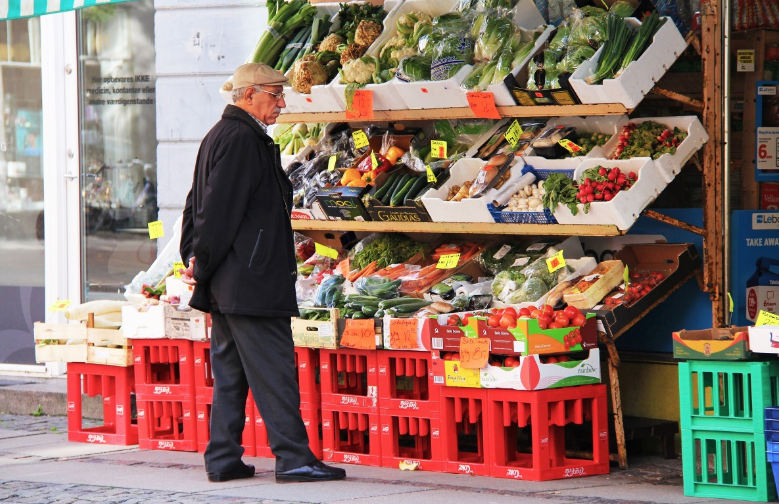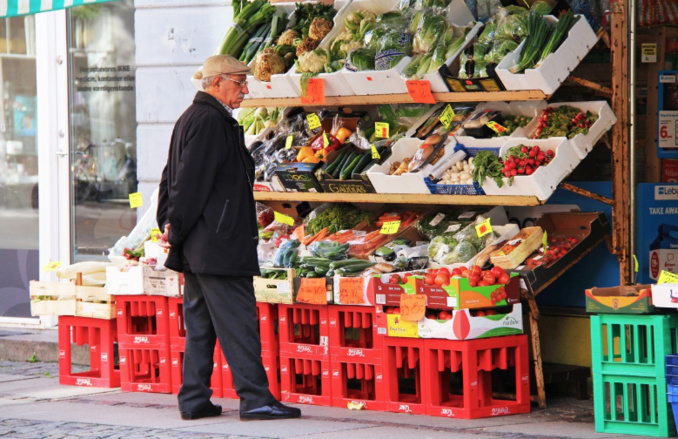American newspaper The Wall Street Journal writes that the rise of "economic nationalism" is increasingly undermining the free trade zone principles on the territory of the EU, despite the fact that these principles are among the most fundamental. It often comes to "national interests" - for example, French President Emmanuel Macron sounded this phrase in a recent statement on nationalization of a French shipyard. The nationalization’s goal was to prevent its purchase by the Italian company Fincantieri.
At the same time, political leaders, including President Macron, say that they only respond to requests from voters who fear that free trade jeopardizes local businesses and jobs. Populist politicians who promote economic nationalism are using this motto noticeably often. Thus, the leader of the French party "National Front" Marin Le Pen promised, in case of election, to replace the euro with the franc and limit the economic integration of France into a single market.
The introduction of food labeling in France has limited imports of dairy products from Germany, Belgium and Sweden. According to the rules introduced in January, the dairy and meat products sold in France should indicate the country of origin, cultivation and processing. As a result, the export of Belgian dairy products to France declined by 24% in the first half of the year, and the Swedish - by 26% in the period from the beginning of the year to September. "This throws us 25 years back, to the times before the creation of a single market," - says the head of the Belgian Federation of Milk Producers.
Following France, some other European countries introduced similar standards for labeling products. Italy, for example, adopted a rule that the label "Made in Italy" cannot be placed on products, any ingredients of which were made outside the country. For example, the famous Italian sweets Baci, produced since 1922, can no longer be so designated due to the fact that they contain cocoa, which is brought from Africa.
Manufacturers of sanitary ware also faced new restrictions. "Previously, we had a common understanding of what was required, and we could sell products almost all over the world. But countries have started to promote their own rules, and now you cannot sell if you do not meet local standards," said Ole Sander, general director of the Dutch sanitary equipment manufacturer Mattsson Mora Group. So, in April, Germany demanded that the plumbing products imported into the country contained only those alloys that were approved by the German authorities. According to Mr. Sander, testing of each product for compliance with German rules will cost € 70 thousand.
The manifestations of economic nationalism in Europe scare international companies. The American food manufacturer Mondelez has already tried to persuade the EU to introduce uniform rules for labeling products, although it has opposed it before. According to Francesco Tramontin, the European director of Mondelez for public relations, the unified system is still better than the different requirements in 28 countries. "Sometimes it seems that we are promoting the single market more than they are," he said.
In general, the single market system itself remains incomplete - not all European norms have been introduced into the legislation of individual countries, some rules are interpreted differently in different countries, and the European rules associated with a single market are often less stringent than, for example, EU antitrust legislation .
All this strengthens economic barriers between the EU countries. In addition, Brexit could have a negative impact on economic integration, since the UK was one of the most active supporters of the single market. The number of complaints related to violations of the rules of the single market, the proceedings on which the European Commission initiated, grew more than threefold last year in comparison with 2015.
According to the calculations of the American Chamber of Commerce and Industry in the EU AmCham EU, further economic integration into the EU would add 0.5% to GDP and contributed to the creation of 1.3 million new jobs. Since 1993, when the single market was created, by 2008, the share of intra-European trade in the GDP of the European Union has grown from 14% to 20%, trade within the EU has declined although during the global financial crisis.
source: wsj.com
At the same time, political leaders, including President Macron, say that they only respond to requests from voters who fear that free trade jeopardizes local businesses and jobs. Populist politicians who promote economic nationalism are using this motto noticeably often. Thus, the leader of the French party "National Front" Marin Le Pen promised, in case of election, to replace the euro with the franc and limit the economic integration of France into a single market.
The introduction of food labeling in France has limited imports of dairy products from Germany, Belgium and Sweden. According to the rules introduced in January, the dairy and meat products sold in France should indicate the country of origin, cultivation and processing. As a result, the export of Belgian dairy products to France declined by 24% in the first half of the year, and the Swedish - by 26% in the period from the beginning of the year to September. "This throws us 25 years back, to the times before the creation of a single market," - says the head of the Belgian Federation of Milk Producers.
Following France, some other European countries introduced similar standards for labeling products. Italy, for example, adopted a rule that the label "Made in Italy" cannot be placed on products, any ingredients of which were made outside the country. For example, the famous Italian sweets Baci, produced since 1922, can no longer be so designated due to the fact that they contain cocoa, which is brought from Africa.
Manufacturers of sanitary ware also faced new restrictions. "Previously, we had a common understanding of what was required, and we could sell products almost all over the world. But countries have started to promote their own rules, and now you cannot sell if you do not meet local standards," said Ole Sander, general director of the Dutch sanitary equipment manufacturer Mattsson Mora Group. So, in April, Germany demanded that the plumbing products imported into the country contained only those alloys that were approved by the German authorities. According to Mr. Sander, testing of each product for compliance with German rules will cost € 70 thousand.
The manifestations of economic nationalism in Europe scare international companies. The American food manufacturer Mondelez has already tried to persuade the EU to introduce uniform rules for labeling products, although it has opposed it before. According to Francesco Tramontin, the European director of Mondelez for public relations, the unified system is still better than the different requirements in 28 countries. "Sometimes it seems that we are promoting the single market more than they are," he said.
In general, the single market system itself remains incomplete - not all European norms have been introduced into the legislation of individual countries, some rules are interpreted differently in different countries, and the European rules associated with a single market are often less stringent than, for example, EU antitrust legislation .
All this strengthens economic barriers between the EU countries. In addition, Brexit could have a negative impact on economic integration, since the UK was one of the most active supporters of the single market. The number of complaints related to violations of the rules of the single market, the proceedings on which the European Commission initiated, grew more than threefold last year in comparison with 2015.
According to the calculations of the American Chamber of Commerce and Industry in the EU AmCham EU, further economic integration into the EU would add 0.5% to GDP and contributed to the creation of 1.3 million new jobs. Since 1993, when the single market was created, by 2008, the share of intra-European trade in the GDP of the European Union has grown from 14% to 20%, trade within the EU has declined although during the global financial crisis.
source: wsj.com



















